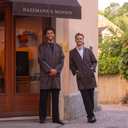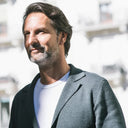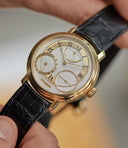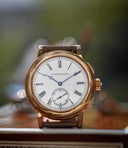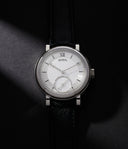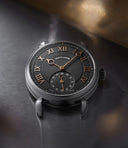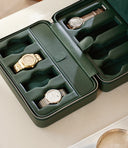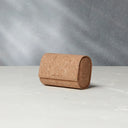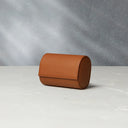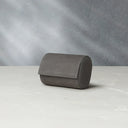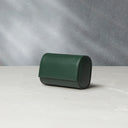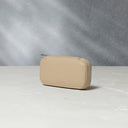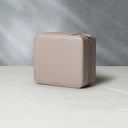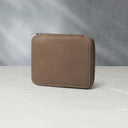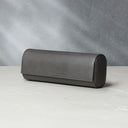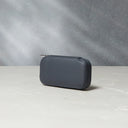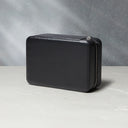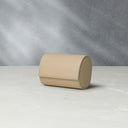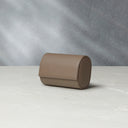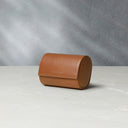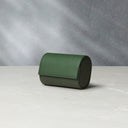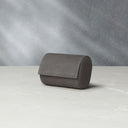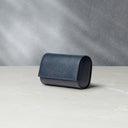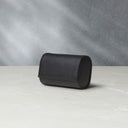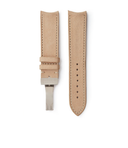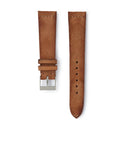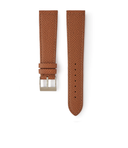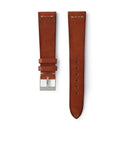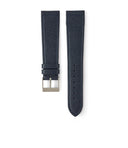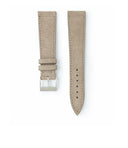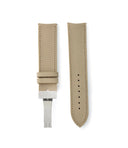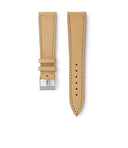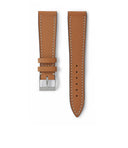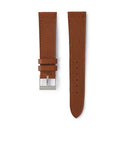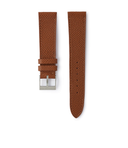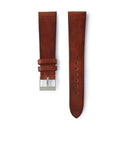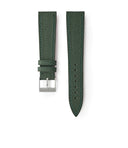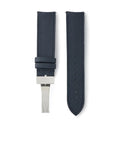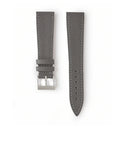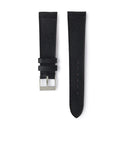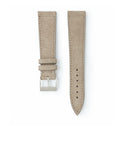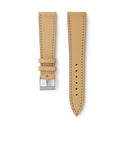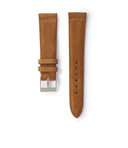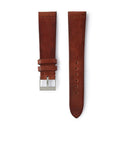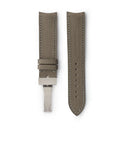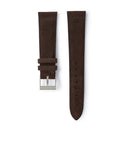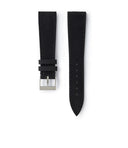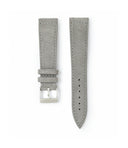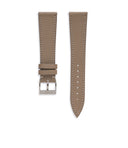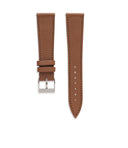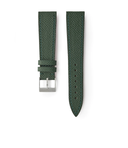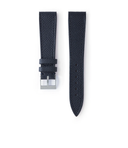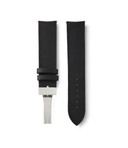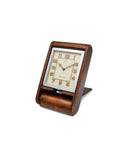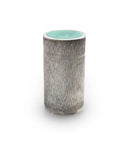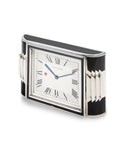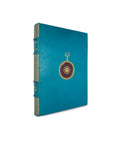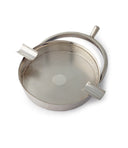Interview: Mark Cho
For our latest interview, we sat down with clothier and watch collector Mark Cho - a gentleman with impeccable sartorial taste and a collector of all things vintage, independent and special. We wanted to find out a little more about founding and growing the Armoury, how he approaches watch-collecting and the acquisition of Drake's.
Tell us a little about where you grew up…
I grew up here in London but I travelled a lot when I was a kid because my dad worked quite internationally. After being born here, I spent a few years in Hong Kong, a few years in LA, and a little time in South Africa too.
Oh, wow…
Then I came back to London after that and remained here from middle-school, until I left for university in the United States. After University, I worked in New York for a bit, then came back to work in London, then on to China to work there for a while.
And what were you doing in China?
I used to work for a fund which dealt with distressed real-estate assets, which basically means that the project will have a serious problem with it, like the developers did a runner or the building’s title had legal issues around it. Basically, it’s anything that has a big question mark surrounding the viability of the project.
Right, so you assess the risk and decide if it’s something you might be able to turn around?
Yeah, exactly, so I would do the financial modelling and the feasibility assessment.
Was that sort of thing ever an ambition of yours to become involved with?
No, although my parents did work in real-estate too, so they pushed me to go into the business. I found it quite interesting and certainly very challenging, because distressed real-estate is very much on the edge with a lot of associated risk. The kinds of people you wind-up dealing with aren’t particularly pleasant, and the situations you are dealing with aren’t pleasant either. That ultimately put me off working in that industry.
What was it exactly that didn’t sit well with you about it?
There was an attitude of how cheaply and badly can we do this before someone notices. That became the overriding theme of all of the work. It just didn’t align with my core principles, so I decided not to do it any longer.

[Laughs] Perfectly understandable. Is that what drove you to oppose that mentality so strongly in the work you’re doing today with the Armoury and Drake's?
There are a few things to it: I like working with people, I like working with teams, and I like collaborative work. You know, Bill Gates had a really great line once upon a time, which was that one programmer can’t really write a very interesting program at all, you need a team of people with different skills to put together something that’s truly special.
Right…
I feel the same way because I like working with people who strive to make the best possible thing, not the cheapest possible thing, or the most efficient but soulless thing. Luckily, at the kind of price-point and the type of products we work with, those don’t have to be our priorities. Our priorities focus on sourcing special things and trying to get the best work possible out of craftsmen.
"I get no joy out of how much we charge people. I charge based on what we need to keep the business running..."
So, it’s all about customer experience and cost is always secondary?
To a certain extent it is, though, we do try and keep cost within reason; I get no joy out of how much we charge people. I charge based on what we need to keep the business running but we do try not to encourage an attitude of ‘this is more expensive so it’s better’. At the Armoury, we have our entry-level range which are our house-brand products made in Japan, and then we have Neapolitan for made-to-measure. We then have various bespoke tailors at the top end, so prices range from around $1,500 up to $7,500 for the top-end bespoke.
Right…
Each product. in each price range, is really more of an alternative than an ‘upgrade’ because you can become a bespoke client of ours and still enjoy many aspects of our entry-level range. Each level is just a new style and experience for a customer to enjoy. Personally, I wear primarily our entry-level tailored clothing plus I have a soft spot for our bespoke tailors: Liverano and Tailor CAID. Each member of The Armoury will have their own interpretation of the products and how they want to wear it.
Just to take us back one step, before we get onto the Armoury and Drake's, what were your early ambitions if you hadn’t really intended getting involved with property?
I have always liked being a merchant. Even through high-school and university, I was always trading something or other because I enjoyed it. I enjoyed the challenge of being a salesperson.
Why do you think that was enjoyable to you?
I’m not so sure actually. Maybe it was because my father was sort of a sales type person, maybe I caught it from him.
What kinds of things were you selling or trading?
In university I would buy IBM Thinkpad parts, which were cheaper than the assembled computer to get separately, and I would assemble them and sell them. You know, they were sold without a full warranty, but I would offer a parts warranty. I did that to pay for flights to go see my girlfriend, because she lived on the West Coast and I was on the East in New York.
Wow…
These things all have service manuals, so it’s really easy once you figure out how to put them together.
Are you the type of person who becomes obsessed with understanding the way that something works?
Not obsessed, but I do like understanding how things work. My attention doesn’t always go as far as the depth of the subject, but I try my best to dig as deep as I can.

Do you remember how you became interested in watches?
I don’t remember actually. It wasn’t something that my father was particularly interested in but he did have a few nice Rolexes. He wasn’t really a collector, as such.
So, how did you become involved with it all?
It was after I bought an Omega Chronostop from Austin Kaye in London. I would walk past there all the time and see all the watches in the window. I used my first pay-cheque in London to pay for it, and I’ve kept it ever since. It was only £350 at the time too.
Not bad at all…
I remember the sales guy taking forever to set the date because it doesn’t have a quick set and he had to wind it for twenty days or something [laughs].
[Laughs] Did you insist on having the date corrected?
[laughs] No, he insisted. I got quite tired of all the small-talk I had to make through twenty days, you know. I actually didn’t buy another vintage watch for another couple of years after that, but the merchant in me saw an opportunity to buy and sell a few pieces here and there. I kept doing this as a little side-hobby but then for a while I was buying a lot more than I was selling and it became ridiculous.
"I remember the sales guy taking forever to set the date because it doesn’t have a quick-set and he had to wind it for twenty days or something [laughs]"
[Laughs] How ridiculous are we talking?
It got to around thirty or so pieces which included some iconic references. For a while I was very interested in owning references that had lore, had a halo around them, and had been put on a pedestal. I got over it eventually, though. It’s not that they were outstanding pieces, it’s just you don’t have to like something just because everyone tells you to. I was also always on the lookout for things that were undervalued or under-appreciated, so things like the Patek Philippe Nautilus 3800 - I went down a few rabbit holes for things like this.
So, what did you do to balance the collection out?
I started to put watches in the Armoury store to sell, more as an experiment than anything else. I wasn’t totally sure if people would buy them or not, but it turned out, they sold really well. I managed to get rid of a decent amount of the collection. Yet, I still enjoyed looking for these ‘undesirable’ references so I continued. There’s something quite nice about feeling ahead-of-the-curve with things like this, because a Chronostop back then was nothing to anybody, you know?
Yeah, absolutely…
And now, it’s a reasonably interesting and sought-after watch. There are a group of collectors out there that are always looking for nice Chronostops. My Vacheron 4072 is another example of something that wasn’t particularly sought-after but is getting more and more popular.
How do you go about choosing what you buy?
I’m much more casual now about what I buy for myself. I buy based on a feeling, usually around the look but also around my admiration for the work that went into it. Working with hand-crafted products day in and day out, you get a sense of how much of a pain in the ass something might have been to realize, and you almost feel drawn to it out of respect and awe that someone had the skill and dedication to make it happen. In short, I’m buying things which I think are beautiful, both aesthetically and technically. I’m chasing down a F.P. Journe Resonance at the moment, because I think it’s so special.
The original brass movement version?
Yeah, I’d love to get my hands on one of those because it’s a part of horological history.
It really is a modern landmark for watchmaking…
Totally.

Tell us a little about how The Armoury came together following your departure from the property business…
It was a bunch of lucky-timing in a way. I had always been interested in tailoring and retail, and I had gotten a part-time job with a tailor in Hong Kong, organising their shows and doing bits of buying for them, which I really enjoyed. There came a point when I had the opportunity to leave my job at the same time as my partner Alan See, and I had been looking at retail spaces for the tailor and came across a great location that I thought might work for them. Ultimately they disagreed, so we left our jobs and took the location ourselves because we really believed in its potential.
That’s a bold move…
Yeah, so we told them that we would take this location and asked if we could act as their representative, giving them the benefit of a service to their clients without actually having to do anything other than paying us a commission. That location was the first Armoury store.
"There are so many really great domestic producers that you just never hear about, small shoe companies in Spain or glove companies in France that don’t export."
Had you put together a concept for it at that point or was it something that developed?
We tried to stick as close to the tagline of, ‘International classic artisanal clothiers.’ What that means is that there is an aesthetic framework “classic menswear” but every country handles it differently. There are so many really great domestic producers that you just never hear about, small shoe companies in Spain or glove companies in France that don’t export. We try to find producers from around the world that fit the framework with their own attitudes and approaches and then mix it all together.
How did things develop for the business?
Things grew nicely. We ended up opening a second location just across the street from our original store.
Oh, really?
Yeah, there’s a mall in Hong Kong called the Landmark Central, which is probably the only mall I could ever imagine our store being in because it’s just so excellent. They were trying to redevelop the basement into a menswear floor, which was just a concept at that point, no one had really done that before and so they invited us to have a location there as an anchor tenant. We represented a very classic and independent look, and they needed that.
You then took the brand international after that right?
Yes, we then opened our third store in New York. We did this because we were seeing a lot of shipments going out to the U.S. and because the vast majority were going to New York, it made sense. We had initially intended just taking a showroom there, so we had a presence for clients to visit, but what ended-up happening was that I found a shop that faced the park with really tall ceilings and it reminded me of our original location in the right way.
Right…
It had a charming feel to it and then I noticed an ad for the business which was occupying the space at the time, as for sale. Instead of heading to the airport to get on my flight home, I went and met the guy who owned the business and had a great chat with him. I wound up taking-over the business and the location.
What was the store at the time?
It was a gift shop which was owned by a Yorkshire man who used to be a PR director at Ogilvy. He had opened this gift shop basically as a joke, and then he had his office in the basement, looking after his big clients like Martha Stewart, American Express and some others like that.
[Laughs] That’s amazing. So you bought the business and continued it or...?
I just took it over for the space, and he was really glad to see if continue on with another shop owner, because he didn’t want to see it get transformed into something commercial, he wanted it to remain as a shop, so we were a good fit.

How did you find business in NYC initially?
It’s been a challenge and a great experience. It’s a good business and it has been growing steadily, but it’s interesting dealing with American customers because they’re very different from our Hong Kong crowd.
In what sort of sense?
Well, people forget that Hong Kong has had a long-standing relationship with tailoring and so people there have a very developed taste for tailoring, because they’ve cut their teeth on so many cheap tailors along the way. They would understand the differences between Florentine bespoke versus Milanese bespoke, they tend to grasp the subtleties a little faster than the average American client. Our New York clients show a great deal of enthusiasm. They have a great energy to explore new things that I enjoy dealing with.
Right…
It’s fun though, because we work at keeping tailored clothing relevant and try to break down this stigma of it being very formal and ‘for work’.
How do you manage to do that?
Well, we tend towards soft tailoring, so unpadded shoulders with very little structure in the chest. In-store, we are very knowledgeable too, and so being able to talk about our passion for tailoring, while explaining the differences in what we can offer the customer gets people excited. People can really tell when a salesperson cares about the subject, it goes a long way.
"Our approach is very old school, we want it to be more like a hospitality experience rather than a ‘retail experience’."
So, it’s more one-on-one rather than a communicable brand message?
I think so, yeah. Our online is doing very well, but it’s still small compared to our in-store sales. Our approach is very old-school, we want it to be more like a hospitality experience rather than a ‘retail experience’. We want to develop relationships with our customers, rather than getting the customer in, take their cash and get them out.
How did you then come to acquire Drake's?
I had been aware of the brand through my purchasing days at the tailors, and I had heard that Michael Drake, the founder, wasn’t sure what would become of the company after he retired. I then met with Michael and we felt that our values and ambitions for the brand were aligned, in that I wouldn’t completely trash it, and we managed to strike a deal and I took over the company.
So, it would basically have ceased to exist unless he managed to find the right person?
Yeah, it was getting to that being a possibility. I think I probably got to it about a year before he made that decision, so it was lucky for me because I don’t think he ever really opened it up to public-bidding.
Is Drake's the reason you don’t open an Armoury in London?
Well, the reason I haven’t opened an Armoury in London, and there is a part of me that would love to, is that London is like my sanctuary. I come here and I usually don’t spend much time on the shop floor, by contrast to New York where I would be there most of the week. That isn’t to say that I don’t enjoy it, but it can get quite tiring. When in London, I deal with a couple of private clients, Drake's corporate stuff, but otherwise I spend time planning. If I opened an Armoury here, I wouldn’t be able to do that anymore.

Let’s talk a little more on watches…
Sure.
So, how did your tastes develop over the years, because you seem to be quite drawn to watches with functions of sorts…
I suppose so, but I find myself drawn to unusual or special complications that have something both technically and aesthetically appealing. I love two register chronographs, time only pieces, not so much tourbillons.
What is it about two register chronographs that you find so appealing?
They’re just so evocative of a certain era, like, the golden age of that type of watch was the ’30s to the ‘50s which typically had smaller case sizes, which I like.
What sorts of things have you been collecting more recently?
Well, I never got bitten by the Daytona bug. They’re fine, but there’s a lot of breathlessness and hyperventilating around them. Sometimes the minutia of the details is too much for me. I do have a soft spot for pre-Daytona Cosmographs though, so I have a 6238 which I love. It’s simple and very under-the-radar.
Absolutely. The Daytona is a funny one, it has gone stratospheric but somehow doesn’t feel like a quarter million dollar watch physically…
Yeah, I mean, watch collecting is an interesting study of human psychology - particularly male psychology. It’s easy to get carried away because you find yourself wanting what everyone else wants. An object is desirable because other people desire it. To own the desirable thing validates superiority. I’m not a particularly competitive person and even I subconsciously get dragged into it. However, I think there is something a little ugly about a feeding frenzy. I enjoy the peace of searching out things that aren’t popular but are special to me in some way.
For more information, please visit the Armoury's website by clicking here.









